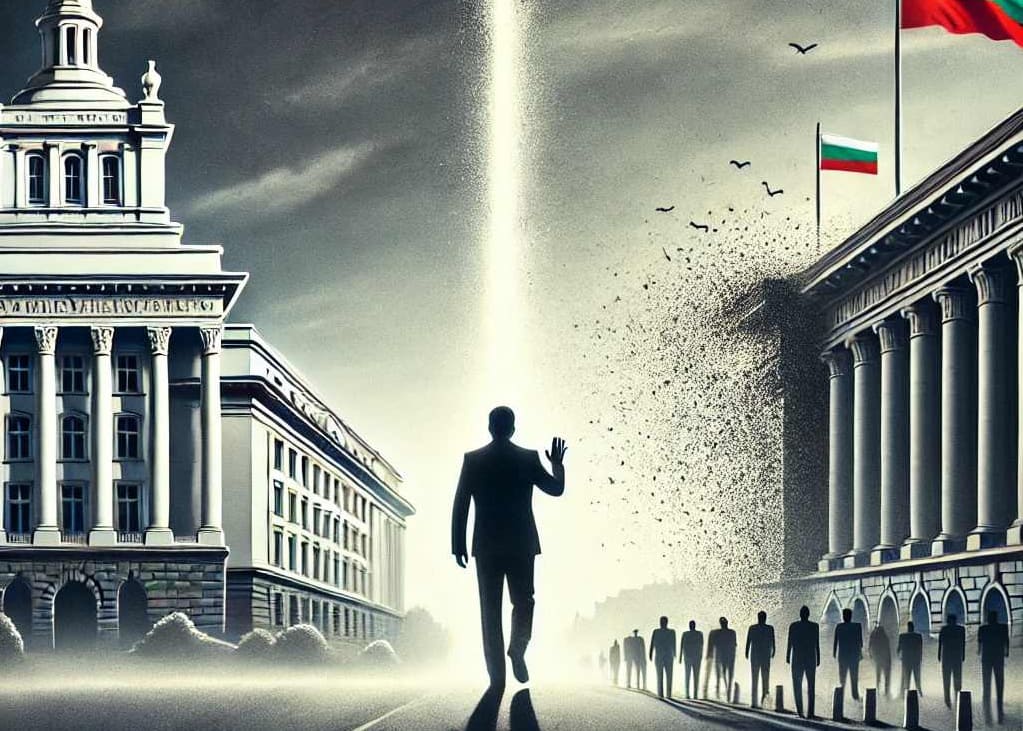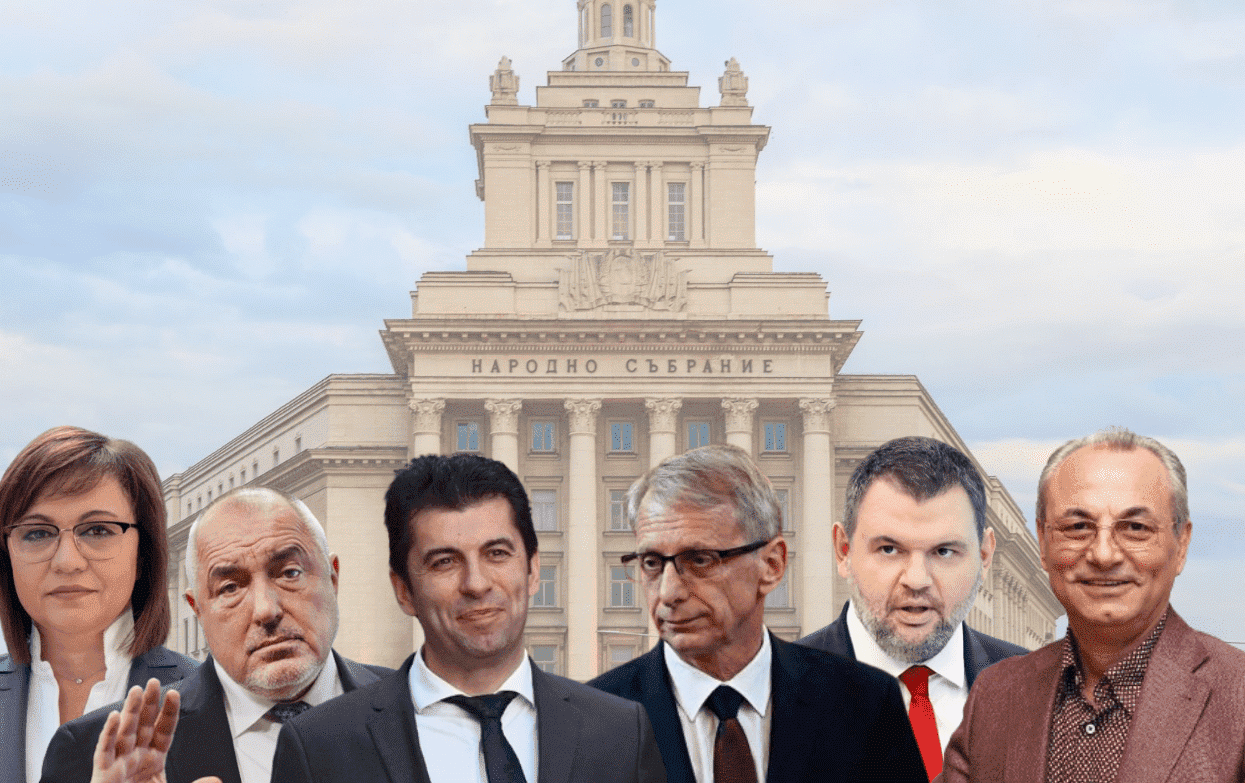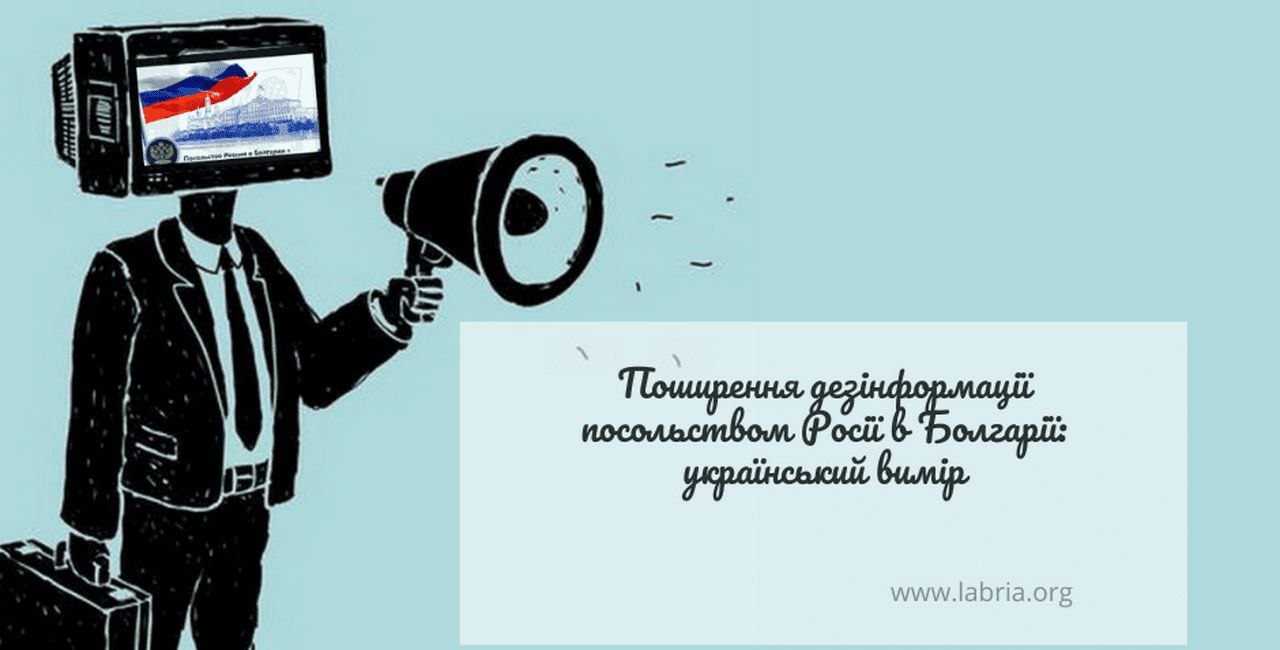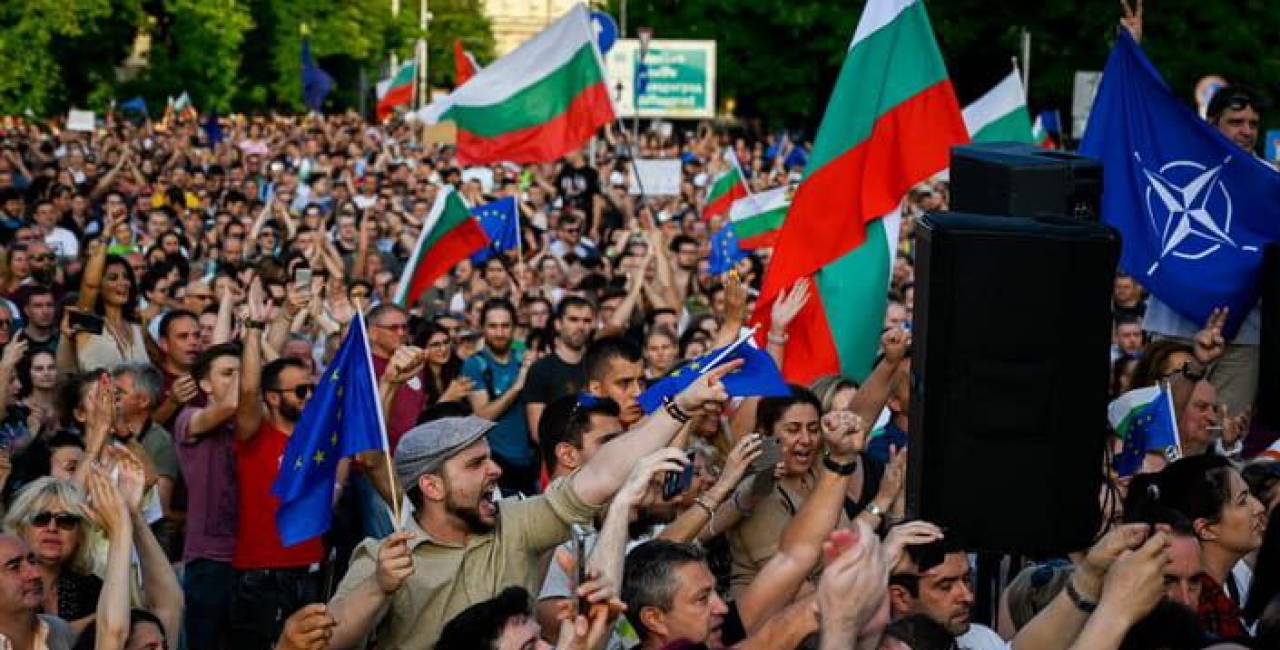
Since 2021, Bulgaria has been experiencing a prolonged political crisis, the way out of which with the help of democracy tools such as parliamentary elections is quite difficult. The inability of politicians and existing parliamentary political forces to get out of the cycle of early elections and form a permanent government increasingly raises the question of the effectiveness of the established parliamentary-presidential form of government and fuels supporters of radical changes in the political system of Bulgaria.
The history of the Bulgarian political transition is a search for a "firm hand" - a figure who will take full responsibility for solving systemic problems. Often this phenomenon is accompanied by the desire to find the so-called "whipping boy" - a convenient culprit who can take responsibility for political failures, disorder, corruption and even personal irresponsibility of citizens, which is often underestimated.
Lack of trust in individual state institutions and a sense of chaos stimulate people's desire for a "strong leader," but historical experience, including Bulgaria, demonstrates that centralization of power often leads to authoritarianism and blocking democratic processes.
Additional factors affecting the political dynamics of Bulgaria are Russia's full-scale aggression against Ukraine and the intensification of Russia's hybrid war against Bulgaria. Propaganda, foreign economic pressure, political manipulation, the creation of affiliated groups and the involvement of agents of influence create a fertile ground for the promotion of the ideas of centralized one-man rule. At the same time, the centralization of power in one hand can lead to a transition from democracy to autocracy, and in extreme cases - to Bulgaria's withdrawal from the European Union and NATO, which is Russia's strategic goal.
The idea of a presidential republic in Bulgaria is seen not just as an alternative, but as a response to long-standing structural problems laid down after the collapse of the communist regime in 1989. Bulgarian history gives painful lessons. The experience of the period of socialism, when Georgi Dimitrov, Valko Chervenkov and the most expressive symbol of the long authoritarian regime Todor Zhivkov, asserted sole power, leading to repression and loss of the basic freedoms of the Bulgarians. This historical trauma is one of the reasons why the majority of Bulgarian society and political class are wary of the idea of even more centralized power. Thus, the current political crisis and external challenges create an environment for discussion of reforming the political system of Bulgaria.
Features of constitutional procedures for changing the form of government in Bulgaria: referendum, Great National Assembly
The current Constitution of the Republic of Bulgaria, which has been in force since 1991 and defines the country as a parliamentary republic on the basis of the distribution of power, provides for a procedure for changing the political system. However, the existing Constitution does not allow for a direct transition to a presidential republic with expanded presidential powers. The current legal system is designed for a system of separation of powers, which is the guarantor of the democratic process, but at the same time creates certain restrictions for the implementation of rapid and radical reforms.
To move to the presidential form of government in Bulgaria, it is necessary to conduct a complex legal procedure, which involves the convening of the Great National Assembly of Bulgaria. According to the current norms, changes to the Constitution and the fundamental principles of the state system are possible only with the participation of the Great National Assembly of Bulgaria. Such a parliament consists of 400 people's representatives and has the authority to adopt a new Constitution, as well as decide on changing the form of government. The initiative to convene a large parliament can come from half of the deputies (120 out of 240) or from the president himself. After submitting the initiative, the parliament considers it within a specified period - no earlier than two months and no later than five months after the submission. To make a decision on the convening of the Great National Assembly of Bulgaria, the support of at least two-thirds of the deputies (160 out of 240) is necessary.
After the adoption of a parliamentary decision, the president organizes elections to the Great National Assembly for three months, which allows ensuring the legitimacy of the constitutional changes. The last Great National Assembly was the seventh to adopt the new Constitution of Bulgaria in 1991.
Since changing the form of government is a fundamental transformation, it is important that this process has broad public support. Among the possible mechanisms for confirming this support is considered: Signature collection - initiative groups can organize signature collection campaigns, which will serve as a preliminary indicator for determining the readiness of society to support changes. And the second mechanism, the holding of a national referendum - the final decision on changing the system should be made on the basis of a national vote, where every citizen will have the right to express his opinion. The referendum will ensure that such changes reflect the will of the people, not just political elites.
Initiatives for the transition to a presidential republic
Over the past few years, the issue of preparing for a referendum on the transition to a presidential form of government has been raised twice. In 2023, the campaign to collect signatures was announced by the Ima Takev People's Party (ITN), and in 2024, immigrants from the Bulgarian Socialist Party. In both cases, experts associate these initiatives with President Rumen Radev, although he himself officially denied any involvement.
In 2023, There Is Such a People (ITN) initiated a campaign to collect signatures to organize a referendum, which was intended to determine whether the public supported holding elections to the Great National Assembly in order to change the form of government from a parliamentary to a presidential republic. The proposed question was as follows
“Do you support the holding of elections to the Great National Assembly, which decide on changes in the form of public administration from a parliamentary republic to a presidential republic?”
The arguments of the IOT were based on the fact that in the current system, despite the formal division of power into legislative, executive and judicial, there is actually a concentration of powers in the executive branch. This is especially noticeable in the activities of recent governments, which leads to a violation of the principles of constitutional separation of powers. Representatives of IOT note
«After 30 years of failed functioning of the parliamentary system, when the Cabinet often acts contrary to the Constitution, it is necessary to create a system where power is more clearly distributed. This is the only way to overcome the legacy of the communist regime, when there are no effective mechanisms of public control due to an underdeveloped civil society and a weak middle class.»
The initiators of the referendum on IOT considered it as a means for the direct will of citizens to transform the state system and create conditions for more effective, responsible and transparent management of Bulgaria.
Another attempt to start the process of transition to the presidential form of government is the creation in November 2024 of an initiative group led by Krasimir Yankov, a native of the BSP. In 2020, he left the Bulgarian Socialist Party (BSP) due to disagreement with the policies of the then socialist leader Cornelia Ninova. Subsequently, he led the Bulgarian Progressive Line formation, which is positioned as a left-wing political project. Yankov was also a candidate for deputy of the National Assembly from the party "Bulgarian entry." The last political project is associated with President Rumen Radev. His further political activities are aimed at building a platform that supports the idea of a presidential republic.
The main goal of the platform is to mobilize support for the idea of a presidential republic at the regional level. The group plans to create branches in large cities of the country.
The key aspect of this initiative is cooperation with individual representatives of the Bulgarian Socialist Party (BSP) and the party "Bulgarian Entrance," as well as support for the positions of Rumen Radev, which indicates the formation of a broad political coalition around the issue of updating the state system. Thanks to this association, the initiative has the potential to attract broad support among individual political circles.
On January 30, 2025, in the city of Vidin, the Social Movement for the Presidential Republic announced the beginning of a new stage of its work. According to information, at a press conference at the BTA National Press Club, the initiator and coordinator of the movement, Krasimir Yankov, said that at the end of summer it is planned to hold a general meeting, which is comparable to a congress of delegates or a meeting of representatives. During these meetings, the majority of active volunteers will determine what specific changes to the basic law need to be proposed. After the general meeting, delegates with the mandate of the meeting plan to appeal to current politicians with a demand to hold a national referendum on the proposed changes. The platform expects that the ruling elite of Bulgaria will probably oppose the collection of signatures.
According to Yankov, after the necessary 400 thousand signatures for a mandatory referendum have been collected, the movement will become the basis of the initiative committee, which in a national referendum will advocate Bulgaria's transition to a presidential republic. If the referendum shows a positive result, which, according to him, is very likely, the current politicians will be forced to organize elections to the Great National Assembly of Bulgaria. In addition, Yankov noted that by the end of March, a full-scale structuring of the movement is expected throughout the country, and not only in large regional centers. This should provide a broad mobilization of support and create a solid base for the further implementation of the planned changes in the state system.
The activities of the campaign are consistently gaining a systemic character already on February 5, 2025. The civil movement for the presidential republic once again held a press conference in Veliko Tarnovo. Krasimir Yankov noted that the goal in 2026 is to successfully hold a referendum on the presidential republic. According to him, the ambitions of the social movement are to collect about 1 million signatures by September, which can be transferred to parliament. Yankov said that the appeal to the referendum will be organized on a voluntary basis. He stressed that President Rumen Radev is not related to the civil movement.
Recall that the second and last five-year presidential mandate of the current head of state Rumen Radev under the Constitution of Bulgaria expires in 2026 and the next elections of the President and Vice President of Bulgaria should be held in November 2026, and the inauguration ceremony of the President of the Republic of Bulgaria should take place in January 2027.
Positions of the leading political parties regarding the transition to a presidential republic
Co-chairman of GERB-SDS Rumen Hristov is categorically against the presidential republican. - "I was the chief secretary of the administration of Peter Stoyanov for 5 years." I know this institution. A presidential republic is the worst option for a young democracy like Bulgaria. "
Presidential candidate in 2021 nominated by the GERD-SDS supported Initiative Committee, Professor Atanas Gerdjikov said: "A firm hand is a temptation. According to him, Bulgaria is an inappropriate place for a presidential republic, given the immature democracy. Even the best and most correct president would be dangerous with a large concentration of power. "
In turn, the current head of the GERB-SDS party, Boyko Borisov, back in 2003, being the Chief Secretary of the Ministry of Internal Affairs of Bulgaria, took the initiative for a presidential republic, his idea of a presidential republic was rejected by the then Speaker of Parliament Ognyan Gerdjikov as inappropriate.
Recently, there has been talk about the future presidential mandate of Boyko Borisov in 2027, in particular, close people to Boyko Borisov come up with this initiative.
Former Speaker of Parliament, member of GERB-SDS and Boyko Borisov's closest ally Vezhdi Rashidov sees no reason why there should not be an agreement on posts between Dondukov 1 and Dondukov 2 (ed. presidency and Cabinet of Ministers), and also asked why Boyko Borisov should not become president after the term of Rumen Radev. "I see no reason why Boyko Borisov should not be president. He's the most experienced, why wouldn't he be president of the country? After this long fatigue of victories, Borisov would be fit to be president of a country with the international contacts he has. Why should Rumen Radev not become prime minister if Boyko Borisov is president, "Vezhdi Rashidov said on the air of the Bulgarian National Television.
It should be noted that for more than 10 years, when the presidential elections are approaching, there are constantly suggestions that Borisov will run for the post of head of state. He himself did not rule out this option for many years and even promised that he would do it, but in the end, for many years, he decided to support other candidates, in particular Rosen Plevneliev, Tsetskaya Tsacheva and Anastas Gerdzhikov.
The position of the coalition "We Continue the Change – Democratic Bulgaria"
The PP-GB, in its response to the allegations of Rumen Radev about the state's inability to manage the port of Rosenets, reminded the head of state that Bulgaria is a European parliamentary, not a presidential republic.
MP from the PP-DB Yavor Bozhankov in 2023 prepared a bill that significantly limits the powers of the president. Some media called this "anti-Radev" law is, in fact, an act aimed at checkmate the president - this is it - and turn him into an inglorious master of ceremonies.
Another MP from the PP-GB, Stella Nikolova, warned on her Facebook page that: "With the presidential republic, a" handful "will come and they will play up, but it will be too late." Bulgaria should keep the parliamentary republic, despite the fat boy (edited by Delyan Peevski) and his staff! "
Position of the Bulgarian Socialist Party
The head of the Bulgarian parliament, Natalia Kiselova, a member of the BSP-Obedinen Levitsa political party, in an interview for the Telegraph in 2022 expressed her vision regarding calls for a transition to a presidential republic and a referendum on this issue:
"Since we are witnessing the inability of the National Assembly to form a government, it seems that if responsibility is transferred to another body, it will function. But if we have a parliament that must pass laws, and the government is formed by the president, will the confrontation be even more serious? We will witness the lockdown again. I have arguments against the admissibility of such a referendum, although in the 44th National Assembly the ban was lifted, which limited the possibility of a referendum on issues of competence of the Great National Assembly. Now some lawyers believe that after the abolition of the ban is permissible. But there is a practice of the Constitutional Court that issues from the competence of other bodies cannot be submitted to a national referendum to the people. In my opinion, not a presidential republic is now a solution, but a change in the behavior of parties. I mean the way they function because some have already turned into one-day parties. These are cloud or virtual party projects. They are created for a specific purpose for one or two participants in the elections, and then completed and replaced with new ones. This is the reason that our parliamentary life is not at the level we expect. "
In turn, Borislav Gutsanov, Minister of Labor and Social Policy, Co-Chairman of the Deputy Group "BSP - United Lioness" in the Bulgarian Parliament of the 51st convocation, being in the position of Organizational Secretary and Member of the Executive Bureau of the Bulgarian Socialist Party in 2022, said: "Bulgaria is a parliamentary, not a presidential republic."
Georgy Svilensky, former deputy chairman of the BSP for Bulgaria parliamentary group, who was expelled from the BSP along with Kornelia Ninova, presenting the BSP's position on the air on BNT, said in 2022: "Of course, the debate about the presidential republic has no place in Bulgaria and they are counterproductive. We diligently poured buckets of oil into this fire, but the mind won. Because Bulgaria is a parliamentary republic and the seat of government in the Bulgarian parliament. "
CONCLUSION
Every year of the prolonged political crisis in Bulgaria, calls are increasingly made to move from a parliamentary to a presidential form of government. Some political players have taken practical steps and, hiding behind the initiative of the grassroots, are trying to launch a complex constitutional process on the way to the concentration of a significant part of power in the hands of one person. However, strong opposition from parliamentary political forces can block changes to the Constitution. A few years ago, almost half of the Bulgarian population opposed the transition to a presidential republic, but the political crisis with the deterioration of the socio-economic situation in the country, it seems, may tip the scales in favor of changing the form of government. Sociological studies of the Gallup International Association two years ago were also conducted on this topic, only a quarter of Bulgarians support the idea of introducing a presidential republic in Bulgaria. 47.5% tend to disagree. 28% cannot assess what sociologists explain by the need for a broad and deep information campaign on this topic.




